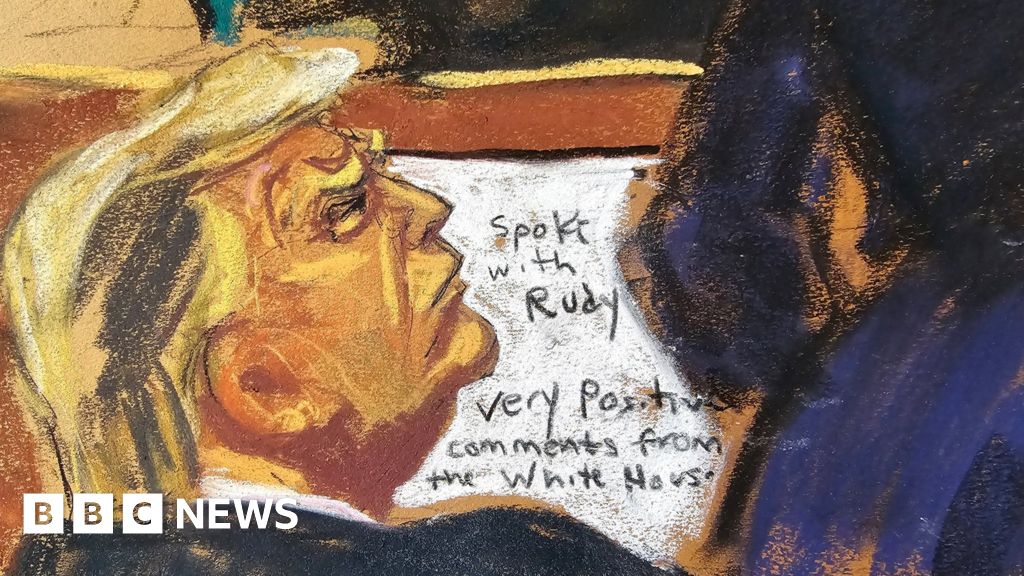Donald Trump will not testify in his historic criminal trial after his defense team adjourned proceedings on Tuesday.
His attorneys will speak on his behalf next week when they deliver closing arguments.
Although Trump decided not to testify, he spoke at length to the media waiting outside the court.
“I think it’s a good case. There was no crime,” Trump said before the afternoon meeting.
Legal experts say it’s not uncommon for criminal defendants to choose not to appear in court.
Testifying under oath would expose Trump to tough questioning from prosecutors and other factors in his background, including recent unfavorable verdicts in civil trials.
Trump faces 34 felony counts of falsifying business records, to which he has pleaded not guilty. Prosecutors say he falsified records of reimbursements to his personal lawyer, Michael Cohen, who paid $130,000 (£102,000) in hush money to an adult film star before the 2016 election. They accused him of doing so in order to commit or conceal a second crime.
Before closing the case, his lawyers called only two witnesses, compared with 20 for the prosecution.
Judge Juan Merchan dismissed the jury in the morning and asked the jury to return on Tuesday to hear closing arguments from prosecutors and Trump’s lawyers.
He then presided over a series of events that allowed the jury to begin deliberations, leading to a highly technical but crucial hearing in the afternoon to determine how he would instruct the jury before it deliberates.
Both sides made suggestions on how the judge would inform the jury about the applicable law and use of evidence in the case.
Many attorneys’ arguments are highly technical. In one instance, there was a debate over references to past “crimes” by Mr. Trump’s former lawyer Cohen, or because there was more than one “crime.” Cohen is a key witness for the prosecution.

